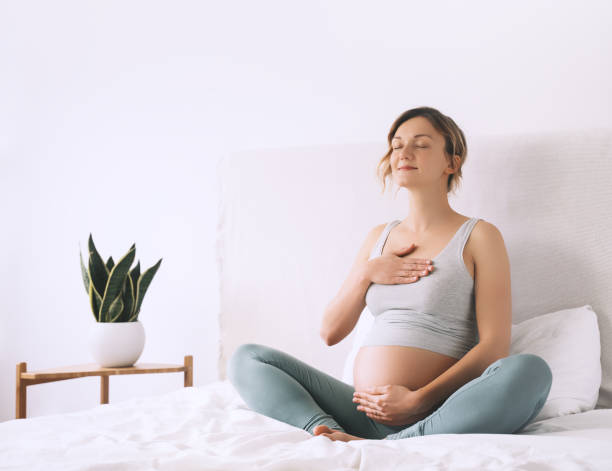
Pregnancy is often portrayed as a time of joy and glowing anticipation, but for many women, it also brings a wave of new emotions, uncertainties, and quite often anxiety. Whether it’s the fear of childbirth, concerns about the baby’s health, worries about body changes, or the pressure of preparing for parenthood, feeling anxious during pregnancy is completely normal. The good news? There are powerful, gentle tools available to help manage these emotions and mindfulness is one of the most effective.
Mindfulness is the practice of being present in the moment without judgment. It’s about observing your thoughts, feelings, and sensations with curiosity rather than fear. For expecting mothers, it can be a lifeline; a way to calm the racing mind, deepen the bond with the baby, and face the journey of pregnancy with grace and calm.
Understanding Pregnancy Anxiety
Anxiety during pregnancy can manifest in many forms. Some women experience persistent worrying, racing thoughts, restlessness, or even physical symptoms like rapid heartbeat and trouble sleeping. While a certain level of concern is natural, ongoing anxiety can be mentally exhausting and, in some cases, affect overall wellbeing. Recognizing the signs early and introducing small habits to support your mental health can make all the difference.

Bringing Mindfulness Into Your Daily Routine
You don’t have to become a meditation expert to benefit from mindfulness. Simple, consistent practices done for just a few minutes a day can help ground you and reduce anxiety.
Start with your breath: Deep, intentional breathing is one of the most accessible and calming tools. Try inhaling slowly through your nose for four counts, holding for four, and exhaling through your mouth for six. This simple technique, often referred to as box breathing, helps signal safety to the brain and slows down the stress response.
Practice mindful awareness: Take a few minutes each day to pause and simply notice what’s around you: what you see, hear, smell, or feel. This could be while sipping tea, taking a short walk, or gently rubbing your belly and tuning into your baby’s movements. These small, sensory experiences can anchor you in the present and gently quiet anxious thoughts.
Guided meditations and affirmations: There are numerous pregnancy-specific mindfulness apps and YouTube channels offering calming audio sessions designed to reduce fear and build confidence. Positive affirmations like “I trust my body,” “Each day brings me closer to meeting my baby,” or “I am strong, I am calm, I am ready” can replace negative thought patterns with empowering beliefs.
Journaling your thoughts: Writing can be a therapeutic way to release what’s on your mind. Whether it’s a stream of consciousness, a gratitude list, or letters to your baby, journaling creates space for self-reflection and emotional clarity.
Mindful movement: Gentle exercises like prenatal yoga or stretching not only support your physical body but also help you connect breath with motion; bringing you back into the present moment. Many prenatal yoga practices end with a quiet meditation or body scan, which can be deeply grounding.
Creating a Calm Environment
Your surroundings can influence your mental state. Creating a soothing atmosphere: dim lighting, calming music, natural scents like lavender, can make it easier to tap into a mindful mindset. Set aside a corner in your home as your quiet space, even if it’s just a small nook where you can breathe, meditate, or journal uninterrupted.
When to Seek Support
While mindfulness is powerful, it’s not a substitute for professional help. If anxiety feels overwhelming, interferes with daily life, or causes panic, reach out to a therapist, midwife, or doctor. You are not alone, and help is available.
Pregnancy anxiety is real, but it doesn’t have to define your experience. Mindfulness gives you permission to slow down, breathe deeply, and trust yourself. It’s about finding peace in the present, no matter how uncertain the future may feel. As you prepare to bring new life into the world, nurturing your own emotional wellbeing is one of the greatest gifts you can give both to yourself and to your baby.

Recent Comments